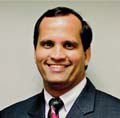Ask The Board
Q: What top trend should pharma executives be taking a more proactive approach to?
A: Reimbursement is the hot topic. The U.S. remains sheltered relative to the EU and other locations, but this is changing rapidly, and the industry is inadequately prepared. Witness the thunderclap that hit the markets at the end of 2014 when Express Scripts announced it would exclusively offer AbbVie’s HCV (hepatitis C virus) treatment and not cover Gilead’s. CVS Health promptly countered, offering preferred status to Gilead drugs. Prior to that, another drug made headlines when Sloan Kettering physicians published an op-ed in the NY Times saying they would not prescribe a new cancer drug that was similar to another but priced twice as high.  It’s no longer only an issue of achieving favorable “tiering” on reimbursement formularies. Where competition exists, companies will increasingly struggle to get on formulary and be required to make compelling value cases for their products.
It’s no longer only an issue of achieving favorable “tiering” on reimbursement formularies. Where competition exists, companies will increasingly struggle to get on formulary and be required to make compelling value cases for their products.
RON COHEN, M.D.
Ron Cohen, M.D. is president, CEO, and founder of Acorda Therapeutics, Inc., a public biotechnology company developing therapies for spinal cord injury, multiple sclerosis, and other nervous system disorders.
Q: What are the keys to running a successful business in the midst of immense distraction (e.g., hostile takeover)?
A: Treat and respect the staff as professionals, be honest about the situation, and provide as much information as possible. In this age of Twitter, online message boards, Instagram, news feeds, etc., information is out there — correct or fabricated — for all to see. Executives need to react and do damage control in a transparent and honest way before things get out of hand. Another way to manage morale for maximum productivity is to enlist trusted leaders and have them communicate frequently with key staff. Often, being productive, in addition  to keeping the mind off of the distractions, will actually help with the negative situation and position the organization to come through this troubled time in a positive manner.
to keeping the mind off of the distractions, will actually help with the negative situation and position the organization to come through this troubled time in a positive manner.
SESHA NEERVANNAN, PH.D.
Sesha Neervannan, Ph.D., VP of pharmaceutical development at Allergan, oversees a wide variety of CMC (chemistry, manufacturing, and controls) activities related to drug development from early discovery to commercialization.
Q: What macro trend have you noticed beginning to impact the way you do business?
A: As a long-time hill staffer and general counsel for an advocacy organization, I have seen executives interact with members of Congress and senior federal officials from both sides of the table. When these meetings don’t go well, it’s usually because the advocates do not adequately know their audience. You can’t assume a busy member of Congress or agency official will know or care about your issue in isolation. You must provide context that matches the official’s interests and responsibilities. Within the first five minutes, everyone in the meeting should know why they are together and why that makes sense based on their respective roles and the issues under discussion. By the end, everyone should know what the specific “ask” is. Clarity in these areas  demonstrates respect for the officials’ time and position, and not only leads to effective and efficient meetings but also usually return invitations.
demonstrates respect for the officials’ time and position, and not only leads to effective and efficient meetings but also usually return invitations.
MARY ROSE KELLER
Mary Rose Keller, VP clinical operations at Tocagen, has 30+ years of industry experience in clinical development strategy and execution of global Phase 1 to 4 clinical trials for drug, biologic, and diagnostic products.
